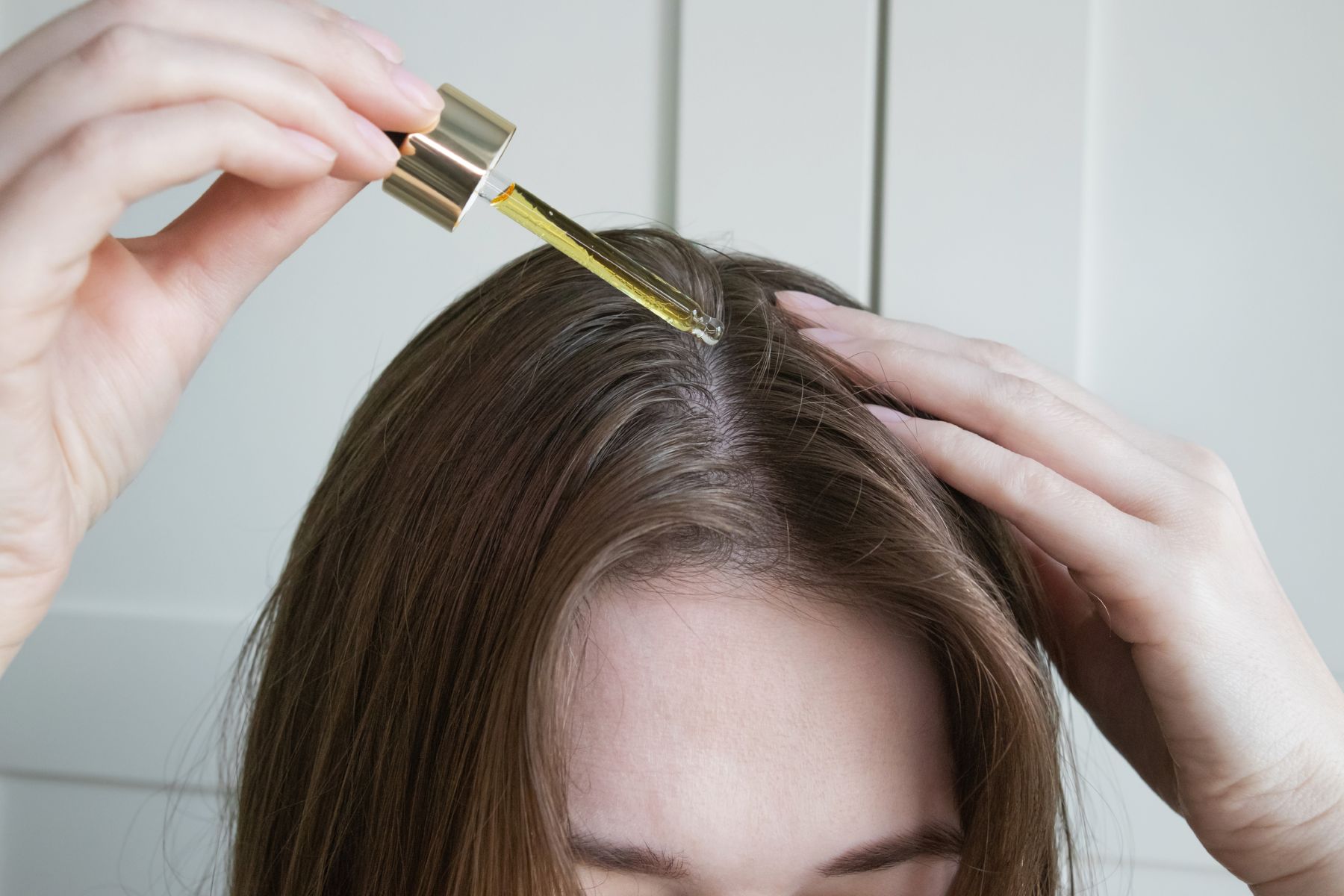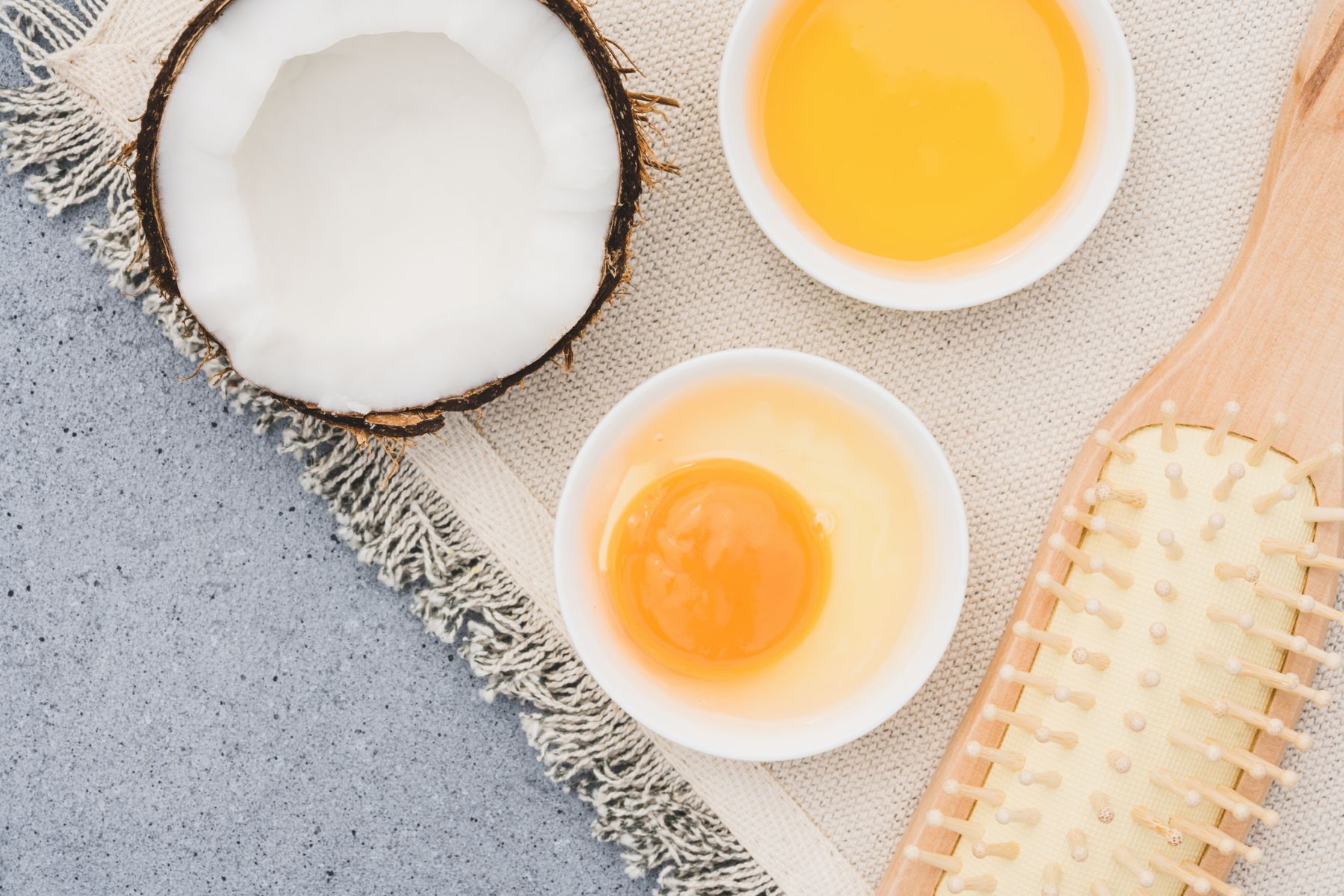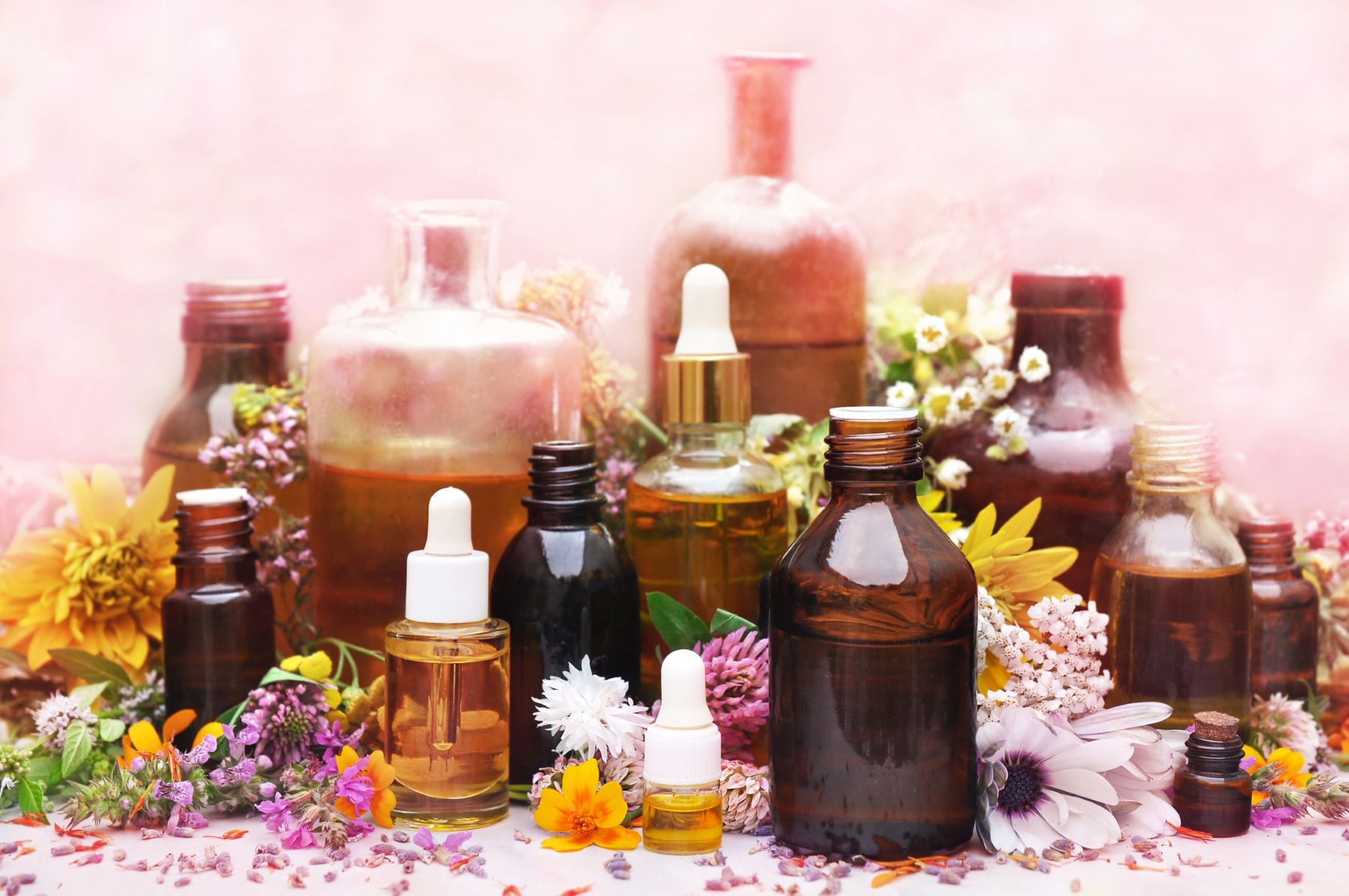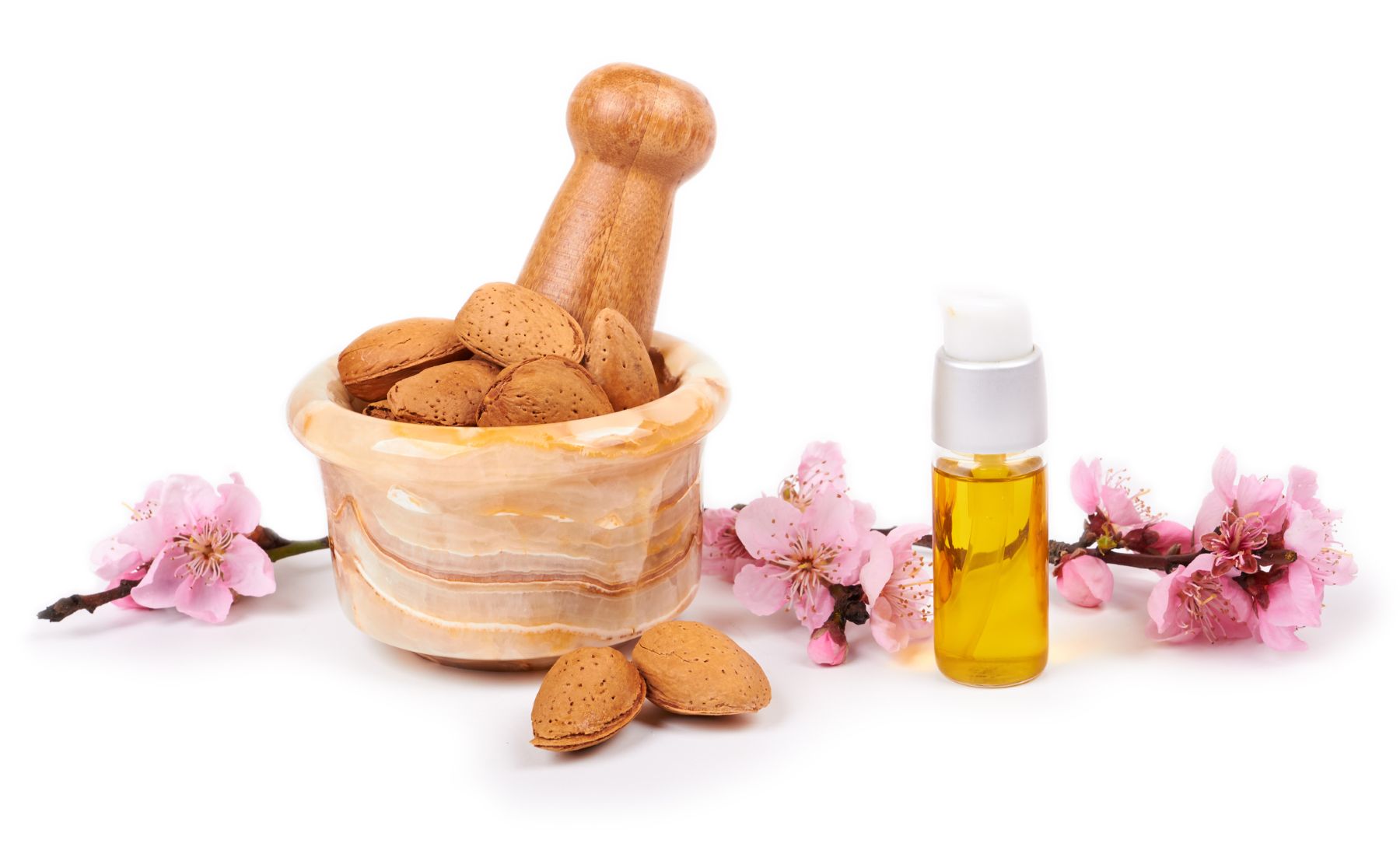Almond Oil for Hair: Benefits, Uses, Side Effects
Hair growth oils are extremely popular, making up about a third of the $100bn+ hair care product market [1]. They are nourishing, and hydrating and can make your hair softer, shinier and healthier. However, not all commercially available hair oils have the same properties. So many users wonder about the benefits of almond oil for hair.
Almond oil is lightweight, but rich in fatty acids [2], which makes it ideal for most hair types. It can keep your scalp clean as well as moisturise and strengthen your hair. This article will tell you all you need to know about its hair health properties:
- Whether almond oil can stimulate hair growth
- The documented hair health benefits of almond oil
- The best ways to use almond oil for hair health
- The potential side effects of almond oil
- Table of Contents
- About almond oil
- Does almond oil promote hair growth?
- What hair benefits does almond oil have?
- How to use almond oil for hair health
- How long can I leave almond oil in my hair?
- What are the side effects of using almond oil on my hair?
- Who can benefit most from using almond oil for hair health?
- Alternatives to almond oil for hair
- Are you looking to improve your hair health?
- Frequently asked questions
About almond oil
Almond oil is extracted from almond kernels and has been traditionally been used for cooking, cosmetic and medicinal purposes. This oil is a pale yellow, it has a mild odour and a nutty taste and is abundant in nutrients and fatty acids. It has been long used as a folk remedy to improve heart health, lower cholesterol, support bowel function and protect liver health [2][3].
The cosmetic industry mainly uses sweet almond oil in hair and skin products, due to its nourishing and moisturising properties. It is known as a good ingredient for keeping skin soft and supple and for treating and repairing damaged hair at home.

Does almond oil promote hair growth?
Unfortunately, there is no evidence that almond oil can stimulate your hair follicles for hair growth. However, it can supply some of the necessary nutrients and vitamins for hair growth that allow your follicles to produce healthier, more resilient strands. Moreover, it can help hydrate and strengthen dry, brittle hair, preventing unnecessary hair breakage.
What hair benefits does almond oil have?
Even if it cannot make your hair grow faster or fuller, almond oil can improve its health and appearance in several ways. Here are some of the most common.
Almond oil can moisturise and nourish your hair
This oil contains an abundance of unsaturated fatty acids (including oleic, linoleic and linolenic acids). These moisturise and condition your hair, making it soft, shiny and silky [2][3][4]. Almond oil can also help tame dry, frizzy hair, making it easier to untangle and style. Furthermore, this oil is rich enough to treat hair dryness but won’t weigh your tresses down, so it can also help get more volume in your hair.
Almond oil can reduce oxidative stress damage to your hair
Oxidative stress from the environment or unhealthy habits such as smoking can damage your hair structure. However, almond oil contains high quantities of vitamin E for hair, which is a natural antioxidant [3][5].
Vitamin E can help shield your hair from some of the damage caused by pollution or nicotine use and may even provide some UV hair protection [3][6]. However, you should still cover your head when going out in the hot sun. Excessive sunlight isn’t good for your hair and the vitamin E in almond oil alone is not enough to keep it safe from UV radiation.
Almond oil can make your hair more elastic
Almond oil can fill the gaps between the cells that make up your hair’s cuticle (its protective outer layer) [3]. This makes your strands stronger and more elastic, so they can resist greater forces without snapping [6][4]. With consistent use, almond oil can reduce hair breakage caused by vigorous brushing, or friction between your hair fibres (especially if you have long hair).
Almond oil may help reduce scalp inflammation
While more evidence is needed to prove this property, some scientists believe almond oil carries certain anti-inflammatory properties. This means it may help soothe the symptoms of common scalp problems that manifest with inflammation (such as seborrheic dermatitis).
Almond oil has also been traditionally used to treat conditions such as eczema or psoriasis [2][3]. However, it is unclear whether improvements were due to the oil’s anti-inflammatory properties or a result of moisturising the dry skin.
Almond oil can clean the scalp and reduce acne
Since it has a light texture, almond oil can easily penetrate the scalp, softening and removing dirt and debris trapped in the hair follicles without weighing your hair down [3][7][4]. This keeps your scalp cleaner [4] and reduces the chances of developing hair follicle infections. Moreover, this oil contains vitamin A, which may help prevent and treat scalp acne [8].

How to use almond oil for hair health
You can use almond oil on your hair in several ways, depending on your hair type, needs and preferences. Here are some of the best.
1. Apply the almond oil directly to your hair
Pour a few drops of almond oil for hair on your fingers or a wide-toothed comb and spread it evenly from your hair roots to its ends. Leave it on for at least 30 minutes, then wash it out with shampoo.
2. Add some almond oil to your favourite hair products
Pour a few drops of almond oil into your shampoo or conditioner bottle. Then use them to wash your hair like you normally would. This can give your tresses a hydration boost, as the oil helps seal moisture inside the strands.
3. Use it in a deep conditioning mask alongside other ingredients
You can combine several beneficial ingredients for hair health to create a deep conditioning mask for effective at-home dry hair treatment and prevention. Here is a good recipe you can try:

Ingredients:
- 1 tablespoon of sweet almond oil
- 1 tablespoon of melted coconut oil
- 2 tablespoons of aloe vera gel
- 1 ripe banana
- 1 egg yolk
Preparation instructions:
- Mash the banana into a paste, leaving no chunks.
- Melt the coconut oil slowly (to avoid overheating).
- Add the almond and coconut oil to a glass bowl and stir gently.
- Add the aloe vera and the egg yolk to the oils and mix well.
- Add the banana to the mixture and stir until you get a smooth cream. (If the cream is too thick, you can add one more egg yolk. If it is too thin, you can add more banana).
How to use:
Apply the mixture to your scalp and rub it gently in. Then, use your fingers to spread it on the entire length of your hair. Use a shower cap to cover your hair and let the mask sit for 30 minutes to 2 hours, depending on how dry your hair is. Then wash it off with warm water and gentle shampoo.
If you have short hair, you might only need to use a quarter of the mixture, while medium and long hair may require more. Should you have any hair mask left over, you can place it in a glass jar with a lid and store it in the fridge. Make sure to use it within a week.
4. Use sweet almond oil to dilute your favourite essential oils
Sweet almond oil for hair is a carrier oil, which means it can be used to dilute essential oils. Simply add 2 drops of your favourite essential oil for hair growth to 98 drops (approximately one teaspoon) of almond oil to obtain a safe 2% concentration dilution.
However, make sure that you are using sweet almond oil for this purpose. Do not use bitter almond oil (rarely used in cosmetics), as it is an essential oil, not a carrier.
5. Use it as a leave-in conditioner
Using almond oil to create a leave-in conditioner is a bit tricky, as it is insoluble in water. However, you can always add a mild emulsifier, such as polysorbate 20 or lecithin (you can purchase these ingredients online or from a cosmetic/soap-making supply store) to help it dissolve and make it easy to apply.
Simply add 1-2 teaspoons of almond oil and 1-2 teaspoons of emulsifier to a cup of water. Stir well and pour into a spray bottle, to spritz on your hair as needed.
If you’re not comfortable using an emulsifier, you can skip it, but remember to shake the spray bottle vigorously before each use, as the oil and water will separate.

How long can I leave almond oil in my hair?
Since almond oil is a light carrier oil, you can safely leave it in your hair for longer periods than heavier carriers, such as coconut oil for hair. It normally takes between 30 minutes and 2 hours to act. However, if your hair is dry, you can leave it in overnight. Just make sure to wash your hair well with warm water and shampoo the next morning.

What are the side effects of using almond oil on my hair?
There are no known risks or side effects associated with using almond oil on your hair. It is generally considered safe to use by most people, with all hair types.
However, if you have a nut allergy (especially to almonds) you may develop contact dermatitis when using it. Its main symptoms are scalp itching, swelling, irritation, and/or a rash. While almond oil is naturally hypoallergenic [5], it is best to test it on a small patch of skin before applying it to your entire scalp.
Finally, if your hair is very oily, it is best to avoid frequently using combinations of almond oil and heavier essential oils. While it does make a good carrier oil, applying too many fatty acids to an already greasy hair can have a detrimental effect.

Who can benefit most from using almond oil for hair health?
Everyone, of all hair types, can benefit from using almond oil to improve their hair appearance and properties. However, people with dry, curly hair types can get the most hair health advantages.
Almond oil helps curly hair the most, as it can moisturise and condition your locks, taming their natural frizz. At the same time, its light texture allows for using other hair products alongside it. Coily Afro hair is particularly high maintenance and often requires several moisturising and styling products to look its best. Almond oil helps make your curls stronger, softer and shinier without weighing them down.

Alternatives to almond oil for hair
If you are searching for an effective, evidence-based hair growth oil, here are some of the best options you can try:
- Rosemary oil for hair growth – Research shows that the best rosemary oil for hair is comparable to Minoxidil 2% in treating androgenetic alopecia, as it contains natural DHT blockers [9].
- Pumpkin seed oil for hair growth – studies show that pumpkin seed oil can improve the symptoms of both male pattern baldness and female pattern baldness [10][11].
- Black seed oil for hair growth – this oil can help regulate your hair growth cycle and stimulate faster hair regrowth in people with telogen effluvium [12].
- Peppermint oil for hair growth – menthol in this oil can soothe scalp inflammation. Moreover, there is evidence this oil can boost hair growth by increasing blood flow to your hair follicles [13].
Are you looking to improve your hair health?
If natural hair oils prove insufficient to make your hair healthy and vibrant once more, leave it up to the professionals. Book a consultation with one of our experienced trichologists at your most convenient clinic location.
Our dedicated hair doctors will perform all the necessary diagnostic trichology tests to identify the cause of your hair problems. Then, they will recommend the most effective treatments and hair care routines to restore your hair to perfect health.
FAQs
As their name suggests, sweet almond oil (SAO) is extracted from an almond variety known as sweet almond, while bitter almond oil (BAO) is extracted from bitter almonds. The sweet variety is most often used in skin and hair care products, as it contains more unsaturated fatty acids than BAO, along with large amounts of vitamins E and K [3].
Another key difference is that while their composition is similar, BAO contains some toxic substances (such as amygdalin and hydrogen cyanide) that SAO does not. Unless they are removed by refining, BAO cannot be safely ingested. However, it can be used in topical health remedies [3].
There is no evidence that almond oil has an antifungal effect, so it is unlikely to help with dandruff caused by a yeast infection on the scalp. However, almond oil can moisturise and soften your scalp skin. So if your dandruff is caused by scalp dryness, it can reduce flaking and make your hair look healthier.
Almond oil is gentle and light, so it is normally safe to use on your hair daily. Just make sure you wash your hair frequently to avoid buildup. However, if your hair is naturally greasy, it may benefit from using hair oils less frequently (2 or 3 times a week at most).
If you are unsure how your hair will react to daily almond oil use, you can try it for a week or two and notice the changes. If you are happy with them, you can continue. If you are not, simply reduce application frequency until you reach the perfect balance.
There is no evidence at this time that almond oil can treat any type of alopecia. However, it can prevent unnecessary hair breakage by nourishing and strengthening your strands.


